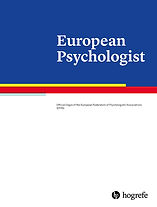top of page

Refugees facing COVID-19
Refugee committee:
Moving beyond the COVID-19 outbreak
The following report is a summary of the results of the survey that was jointly administered by UNHCR and researchers from several universities in Belgium in the period between May and July 2020 to document how refugees in Brussels were coping with the COVID-19 outbreak. More precisely, the survey aimed at producing empirical evidence regarding the challenges and related psychological strains that refugees experienced, and the resources that refugees could mobilize to face the pandemic. Noticeably, the survey was not an end in itself: Following the administration of the survey, UNHCR, and the RCs met with four RCs to review and discuss the findings and their implications, as well as draw up a joint advocacy plan targeting the local authorities. It also constituted the first steppingstone in the multi-stakeholder process that aimed at fostering intercultural dialogue, community resilience and the civic participation of refugees in their host countries.

Politi, E., & Roblain, R. (2021), Refugee committee: Moving beyond the COVID-19 outbreak. doi: https://doi.org/10.13140/RG.2.2.35224.11521

The impact of COVID-19 on the majority population, ethno-racial minorities and immigrants
The COVID-19 pandemic has globally impacted life as we know it and threatened individuals and societies around the world. Consequently, many researchers have started addressing individuals’ fears, worries, and concerns during different stages of the virus outbreak. Our systematic literature review organizes fragmented lines of enquiry into an integrated framework to understand the content and consequences of COVID-19 threats for group dynamics and intergroup relations. Special attention was dedicated to ethno-racial, immigrant, and refugee minorities and their frailty in facing specific pandemic features. Gaining a differentiated understanding about the functionality of coping mechanisms for COVID-19 related threats can provide an image of the psychological costs associated with different strategies to combat virus spreading.
Politi, E., Lüders, A., Sankaran, S., Anderson, J., Van Assche, J., Spiritus-Beerden, E., Roblain, A., Phalet, K., Derluyn, I., Verelst, I., Green, E.G.T. (2022). The impact of COVID-19 on the majority population, ethno-racial minorities, and immigrants: A systematic review on threat appraisals from an inter-group perspective. European Psychologist, 26. https://doi.org/10.1027/1016-9040/a000460
Are we really going to get out of COVID-19 together? Secured legal status and trust among refugees and migrants
Building up on pre-existing vulnerabilities and social exclusions, refugees and migrants are disproportionately suffering from the negative effects of the COVID-19 outbreak. Insecure legal status is an additional stressor that may accentuate social cleavages and ultimately impair their trust in host society and institutions. Based on a diverse sample of refugees and migrants in Belgium (N= 355), the present study investigates direct and indirect effects of legal status—measured as the type of residence permit held by participants—on social and political trust during the COVID-19 outbreak. Secured legal status was positively associated with social and political trust directly, and indirectly via a serial mediation composed by two cumulative stages. First, participants with a more secured legal status experienced less material difficulties to cope with the pandemic (ie, first material stage). Second, participant who experienced less material difficulties identified more with the host society (ie, second symbolic stage). In turn, reduced material difficulties and increased identification with the host society were both positively associated with social and political trust. Our findings advocate for securing legal status of refugees and migrants to help societies cope cohesively with the long-lasting effects of the COVID-19 outbreak.

Politi, E., Roblain, A., & Licata, L. (2023). Are We Really Going to Get out of COVID-19 Together? Secured Legal Status and Trust Among Refugees and Migrants. Journal of Social and Political Psychology, 11, 45-59. https://doi.org/10.5964/jspp.6969
bottom of page
